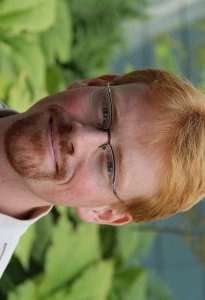Matthias Forkel receives science award of Beutenberg Campus

Matthias Forkel, former doctoral student at Max Planck Institute for Biogeochemistry, is this year’s winner of the Beutenberg Campus science award in the category „outstanding dissertation”.
His passion for the climate system already became apparent during the school years when he set up a webpage with all kinds of information on this topic. He pursued his interest and studied geography and geo-informatics at the Friedrich Schiller University Jena from where he received his doctoral degree in 2015.
In his PhD thesis he focused on the global dynamics of terrestrial vegetation in recent decades. His work strongly focused on the phenology of vegetation as observed on the one hand by means of optical remote sensing and on the other hand as modeled in response to meteorological conditions with vegetation models. Both the determination of decadal trends in vegetation dynamics ("greening or browning") as well as the analysis of the conditioning factors is a highly topical and difficult issue, in which different international working groups have come to contradictory results because of different methods in recent years. Owing to his extremely comprehensive analysis, M. Forkel shed much "light on this issue."
During his research M. Forkel established strong research links with the Potsdam Institute for Climate Impact Research (PIK), the Laboratoire des Sciences du Climat et de l'Environnement (LSCE) in Paris and with the Scripps Institution of Oceanography, La Jolla, California.
He recently left the institute to join the Technical University Wien, where he was awarded a Living Planet Postdoctoral Fellowship of the European Space Agency (ESA).
The Beutenberg Campus e.V. accords every year two science awards in the categories ‘outstanding dissertation’ or ‘excellent research as junior scientist’. This year’s award ceremony will take place during the Noble Talk event in fall.












